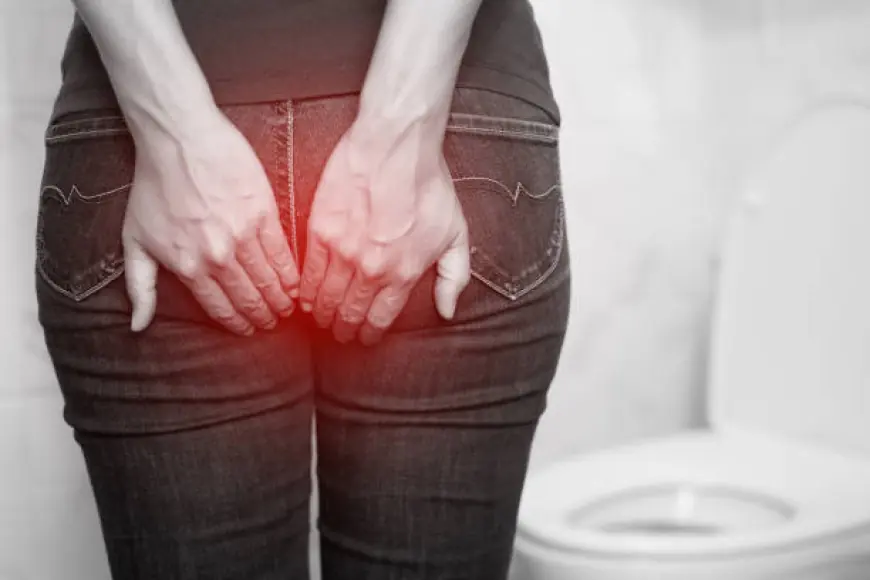Do I Need a Referral for Hemorrhoid Treatment in Riyadh?
In most cases, you do not need a referral to consult a specialist for Hemorrhoid Treatment in Riyadh.

Hemorrhoids are swollen veins in the lower rectum or anus, often caused by excessive straining during bowel movements, chronic constipation, pregnancy, or sitting for prolonged periods. While not usually dangerous, hemorrhoids can cause discomfort, itching, pain, and rectal bleeding. Many people delay treatment, assuming the condition will resolve on its own. However, early medical attention can prevent complications and speed up recovery.
In Riyadh, with a growing demand for specialized healthcare, many residents seek reliable options for hemorrhoid care. Whether you’re dealing with mild discomfort or more severe symptoms, knowing your treatment path is essential to ease anxiety and guide you in the right direction.
Do I Really Need a Referral for Hemorrhoid Treatment in Riyadh?
In most cases, you do not need a referral to consult a specialist for Hemorrhoid Treatment in Riyadh (علاج البواسير في الرياض). Many healthcare centers and hospitals allow direct bookings with general surgeons or proctologists. This patient-centered approach streamlines the process, making it easier for individuals to get timely care without unnecessary delays.
However, if you are visiting a government hospital or your insurance policy requires a general practitioner’s recommendation first, then a referral might be necessary. It depends on your chosen healthcare route—private or public—and your insurance provider’s terms. Regardless, seeking consultation early helps avoid worsening of symptoms and potential surgical interventions.
Types of Hemorrhoid Treatments Available in Riyadh
Medical facilities in Riyadh offer a wide range of treatment options. The method chosen usually depends on the severity and type of hemorrhoids—internal, external, or thrombosed.
Minimally invasive options such as rubber band ligation, infrared coagulation, and sclerotherapy are common for mild to moderate cases. These procedures are typically performed in outpatient settings and involve minimal recovery time. More severe cases may require hemorrhoidectomy or laser surgery, which offer long-term relief.
Understanding the available treatments gives you clarity and confidence when choosing the right approach for your condition. Riyadh’s healthcare ecosystem continues to embrace modern technologies that make treatments safer and less painful.
How to Choose the Right Specialist for Hemorrhoid Treatment
Choosing the right specialist can significantly impact your comfort, recovery, and overall experience. In Riyadh, patients have access to a growing number of experienced proctologists and general surgeons who specialize in colorectal conditions.
Start by checking patient reviews, qualifications, and clinic facilities. It’s also important to look for someone who makes you feel comfortable discussing symptoms openly. The right specialist will not only offer you treatment but also guide you on diet, lifestyle changes, and preventive care strategies to avoid recurrence.
Patients often appreciate doctors who take time to explain the condition, walk them through treatment options, and offer a tailored approach instead of a one-size-fits-all solution.
What to Expect During Your First Consultation
Your initial consultation is your opportunity to express concerns, ask questions, and receive a proper diagnosis. The specialist will typically take a detailed history, followed by a physical examination. In some cases, they may recommend additional diagnostics such as a proctoscopy or colonoscopy to rule out other conditions.
Being open about symptoms, lifestyle habits, and any over-the-counter remedies you’ve tried will help your doctor make an informed decision. The consultation aims to make you feel seen, heard, and understood—so don’t hesitate to speak up.
Lifestyle Tips to Support Hemorrhoid Recovery
While professional care is crucial, your lifestyle also plays a vital role in managing and preventing hemorrhoids. Adding fiber to your diet, drinking more water, and staying physically active are foundational habits that can ease symptoms and prevent future flare-ups.
Avoid straining during bowel movements and limit time spent sitting, especially on hard surfaces. Using warm baths or sitz baths after bowel movements can provide temporary relief and support healing.
The combination of clinical care and at-home practices creates a more holistic approach to Hemorrhoid Treatment in Riyadh, ensuring lasting comfort and confidence in your body.
? Frequently Asked Question
Do I Need a Referral for Hemorrhoid Treatment in Riyadh?
You typically don't need a referral for private clinics or hospitals in Riyadh, especially if you're opting for self-pay. However, if you're using government services or insurance, you may be asked to see a general physician first. It's always best to confirm with the provider in advance.
? Frequently Asked Question
Are Non-Surgical Options Effective for Hemorrhoids in Riyadh?
Yes, non-surgical treatments like rubber band ligation, laser therapy, and sclerotherapy are effective for many patients. These methods are available in Riyadh and often preferred due to minimal downtime and quick relief.
? Frequently Asked Question
How Long Does Hemorrhoid Treatment Take to Show Results?
Initial relief is often felt within a few days, especially with laser or ligation treatments. Full recovery depends on the method used and your body's healing rate. Most patients in Riyadh resume normal activities within a week.
? Frequently Asked Question
Can Hemorrhoids Recur After Treatment in Riyadh?
Yes, recurrence is possible, particularly if lifestyle changes are not adopted. However, with proper guidance and post-treatment care, the chances of recurrence can be significantly reduced.
Final Thoughts
Getting timely and effective Hemorrhoid Treatment in Riyadh is easier than ever, thanks to the city’s advanced healthcare infrastructure and patient-friendly systems. Whether or not you need a referral largely depends on your care path, but proactive steps can spare you from prolonged discomfort.
Listening to your body, seeking help early, and maintaining a healthy lifestyle all contribute to a better outcome. Your comfort is worth the care—don’t wait to take that first step toward relief.
What's Your Reaction?
 Like
0
Like
0
 Dislike
0
Dislike
0
 Love
0
Love
0
 Funny
0
Funny
0
 Angry
0
Angry
0
 Sad
0
Sad
0
 Wow
0
Wow
0




















































